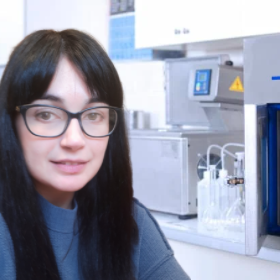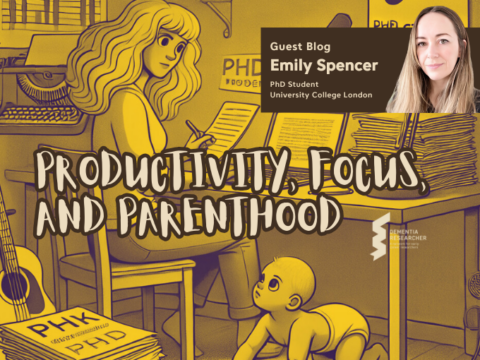Completing a PhD is such a huge undertaking, one in which you end up knowing a lot about very little. Meaning, you have become highly specialised in a very specific area. If at this stage you are now thinking about applying for postdoctoral positions, what are the chances that there will be one that matches your skills and research interests? In this blog, I will share why I pivoted my research area, and discuss how you can too.
As I was coming to the end of my PhD many years ago now, I began searching for postdoc positions. My approach was to apply for positions either in my research area, or adjacent to it, and if I met the requirements of some of the research methods/techniques listed. It is generally understood that no one is going to have mastered all the techniques required for a project when applying, but expertise in some of them, and a willingness to learn the others, is what’s important. So my first pivot came when moving from my PhD to my first postdoc position, where I brought skills which the project required in animal behaviour/cognition, processing rodent brain tissue, and immunohistochemistry. I also had a Home Office licence which was required to carry out the animal research. The research area of my postdoc project was slightly aligned to what I had done during my PhD, but it was still a pivot from researching the fundamental processes of memory, to now using a mouse model of Alzheimer’s disease to understand what happens to these processes in the context of a disease which significantly and progressively impairs memory. On reflection, this truly was the best project I could have done straight out of my PhD, as it allowed me to enhance the skills I had already developed, but also build new ones whilst I was beginning to explore what my specific research interests were.
During my first postdoc position, I developed a strong interest in neuropathology through my use of immunohistochemistry, a technique commonly used in diagnostic and experimental pathology to understand the causes, mechanisms, and extent of disease, and of which I previously wrote a blog about. It was this interest in neuropathology, and also neuroinflammation, that led to my next research area pivot; into stroke and vascular dementia for my second postdoc position. Here, I was again using many of the laboratory and microscopy skills I had already developed, but now I was applying that to human post-mortem brain tissue in a slightly different research area. This involved understanding how human tissue is processed and treated differently to animal tissue. Although I had pivoted research areas to study stroke, it was still in the context of how that can lead to dementia, and how neuroinflammation may contribute to this process. I therefore never felt like I was out of my depth, but rather it was a natural progression from what I had done before.
My final pivot came in my third postdoc position where I was again largely using the same skills, which by now I had used extensively for neuropathology research, but now my research area had subtly changed again this time to traumatic brain injury related neurodegeneration. Although this was a new research area for me, the project still fell under my overarching interest of neuroinflammation and dementia.
Looking at my research track from where I started, in a psychology department largely conducting animal behaviour experiments, to where I am now, in biomedical science mainly carrying out cellular neuropathology studies, it looks like a huge pivot. However, with each pivot relatively little changed each time. For the most part, I was using skills and techniques I already had experience of, which were then further developed to suit the requirements of each project. The broad area of my research has also remained unchanged. I’m interested in how neuroinflammation drives the progression of dementia-related neurodegenerative diseases. It is the specific research areas which changed with each pivot, and although that may sound like a relatively small thing to adjust to, it wasn’t without challenges. It involves familiarising yourself quickly with a whole new area of research, as this will be needed in order to design your studies and choose the most appropriate methods/techniques for your experiments, and to know how you’re going to analyse and interpret your results. It goes without saying that presenting your research to experts in a specific field is terrifying, particularly when it is an area you have pivoted to as a postdoc.
So why might you want to pivot your research area? Well sadly, it may not be through choice. I’ve shared a lot in my previous blogs and on the Dementia Researcher podcast about how I feel about the precarious working situation that ECRs face in academia. Often when contracts are coming to an end it is necessary to apply for anything which seems remotely suitable for you. This was pretty much the situation I found myself in each time my postdoc contract ended. However, it is possible to try and use this to your advantage by expanding your range of skills or knowledge, and through developing a network of researchers which can ultimately help advance your career.
Many who decide to pursue a career in academia will find themselves having to pivot their research area to some degree. If you find yourself in this position and are not sure which research jobs to apply for, it might be helpful to uncouple your technical skills from your research area. That way, if applying for a position slightly outside of your research area, but one that requires your technical skills, your skills should be the focus of your application. On the other hand, if applying for a position directly within your research area, but one that requires technical skills you may not yet have, it might be helpful for the focus of your application to be your knowledge of the area, in addition to the skills you can bring and a desire to acquire the new ones that the project requires.
Needing to pivot your research area may be an unfortunate consequence of the precarity that ECRs face, but if you want to pursue a career in academia, it can be used as an opportunity to find out what specific area truly interests you and develop new skills.

Dr Kamar Ameen-Ali
Author
Dr Kamar Ameen-Ali is a Lecturer in Biomedical Science at Teesside University & Affiliate Researcher at Glasgow University. In addition to teaching, Kamar is exploring how neuroinflammation following traumatic brain injury contributes to the progression of neurodegenerative diseases that lead to dementia. Having first pursued a career as an NHS Psychologist, Kamar went back to University in Durham to look at rodent behavioural tasks to completed her PhD, and then worked as a regional Programme Manager for NC3Rs.

 Print This Post
Print This Post





